Inside Montana’s ‘disturbing’ attack on trans kids and the campaign to silence lawmaker Zooey Zephyr
GOP leaders at the state capitol are trying to restrict ‘every aspect of life’ for transgender people, activists tell Josh Marcus


Your support helps us to tell the story
From reproductive rights to climate change to Big Tech, The Independent is on the ground when the story is developing. Whether it's investigating the financials of Elon Musk's pro-Trump PAC or producing our latest documentary, 'The A Word', which shines a light on the American women fighting for reproductive rights, we know how important it is to parse out the facts from the messaging.
At such a critical moment in US history, we need reporters on the ground. Your donation allows us to keep sending journalists to speak to both sides of the story.
The Independent is trusted by Americans across the entire political spectrum. And unlike many other quality news outlets, we choose not to lock Americans out of our reporting and analysis with paywalls. We believe quality journalism should be available to everyone, paid for by those who can afford it.
Your support makes all the difference.The protesters’ demand was simple: “Let her speak!”
On 24 April, scores of demonstrators packed the viewing gallery in the Montana House of Representatives to show their support for Representative Zooey Zephyr.
By that point, the House’s Republican leadership had for days been refusing to recognise the Missoula Democrat, the first elected transgender legislator in state history, after she pointedly criticised colleagues for backing a ban on gender-affirming healthcare for youth, telling them they had “blood on their hands.”
Riot police swept in and arrested seven people.
Two days later, the House voted on party lines to bar Rep Zephyr from participating on the statehouse floor for the rest of the session, with backers of the move arguing the unprecedented step was necessary for “self-protection.”
During debate around the expulsion, GOP lawmakers accused her of fomenting a January 6-style riot by standing silently with her hand on her heart as peaceful protesters chanted. (She has filed a lawsuit challenging the expulsion, arguing it violated her state and US constitutional rights, as well as those of her constituents.)
The dramatic expulsion vote is the culmination of years of growing anti-trans sentiment in the legislature, as well as a fierce movement to resist it. It may be a harbinger of what’s to come in Montana politics and in legislatures across the country, where the GOP has made legislation eliminating medical care, banning inclusive books, rolling back protections at school, and slashing legal recognition for trans people a key priority.
In Montana alone, Republican lawmakers and interest groups are pushing bills that would ban drag shows, allow for the deadnaming and misgendering of trans youth, redefine gender and strip anti-discrimination protections from state law, and allow medical providers to deny people care for personal reasons.
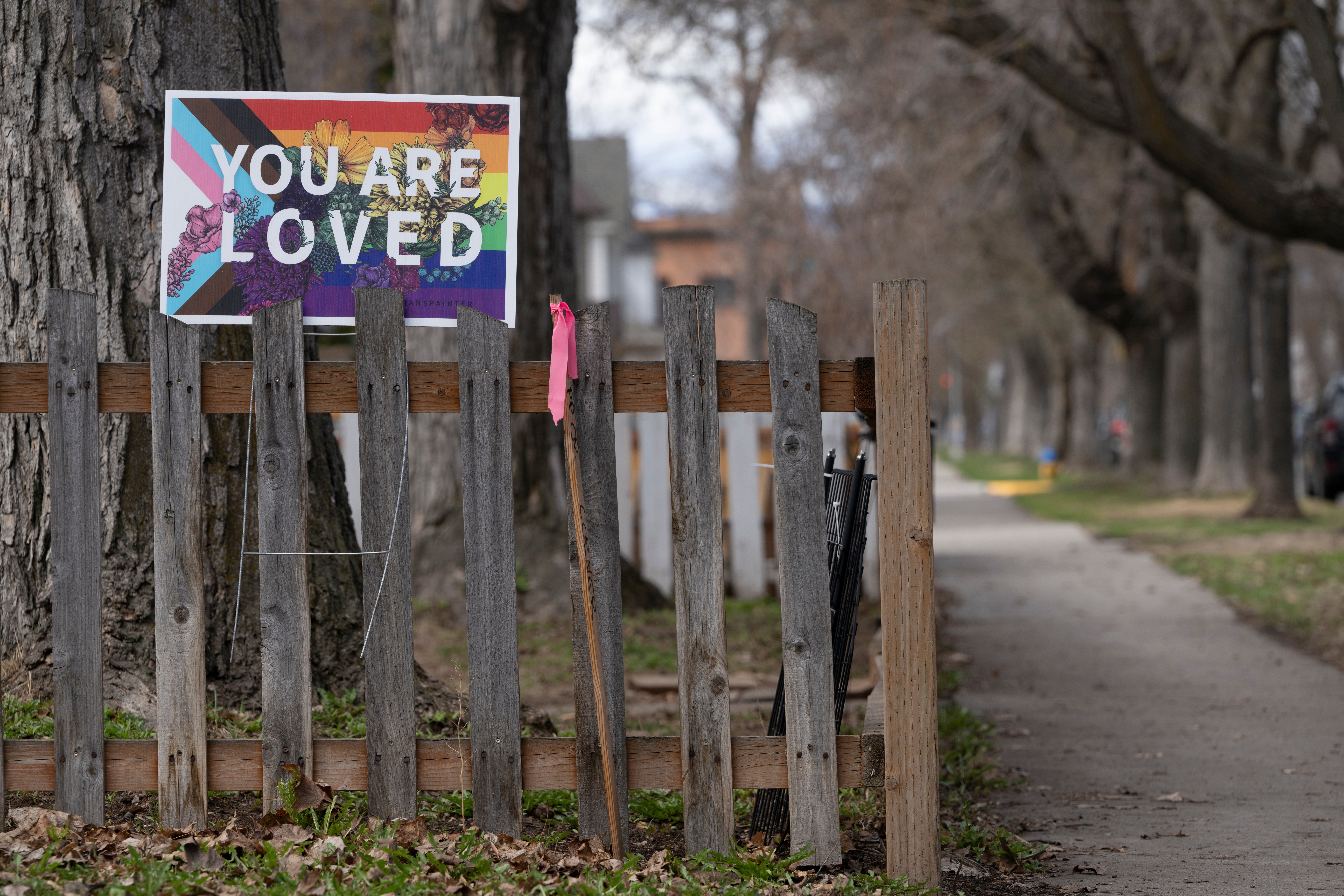
They’ve already passed a ban on gender-affirming treatments, prompting condemnation from medical officials and civil rights activists alike.
Of particular concern, according to advocates, is SB 458, a bill that would redefine sex under Montana law to an extremely strict and controversial definition based only on reproductive capacity, essentially declaring non-cisgender people nonexistent under the law and potentially imperiling decades worth of anti-discrimination protections in the state.
The bill passed both houses on 27 April and is waiting for the governor’s signature.
“These bills are aimed at impacting every aspect of life for the trans, nonbinary and two-spirit communities,” Shawn Reagor of the Montana Human Rights Network told The Independent, referring to a spectrum of gender identities and presentations within various indigenous nations. “They go from how we are born to how we’re identified in our death. They are deeply concerning. We’re simply trying to live our lives and be able to flourish as we have been for centuries. The idea that Republicans are trying to use us as a political pawn to gain points with extremists in their base is deeply disturbing.”

Critics of the bill warn it could prompt arbitrary decisions against minorities in the workplace and in key services like housing, as well as cause chaos across numerous functions of state government, like changing one’s identity documents, all while costing the state billions in unforeseen costs, according to a fiscal note from Senate Democrats.
Such was the state of affairs on 21 April, when Rep Zephyr told her colleagues, “I hope the next time there’s an invocation, when you bow your heads in prayer, you see the blood on your hands.”
The comment was met with a furious reaction from Republicans at the legislature, who demanded an apology.
The conservative Freedom Caucus called for Rep Zephyr to be censored, and deliberately misgendered the Democrat, while its leaders blasted her for “hate-filled testimony.”
The Montana Freedom Caucus declined to speak with The Independent.
The debate around Rep Zephyr’s actions exposed a kind of split reality inside the Montana House.
On one side were Democrats arguing that the slate of bills regulating LBGTQ+ people were causing material harm to citizens, especially young people, and on the other side were Republicans and their allies arguing that the protests against these bills were the real threat.
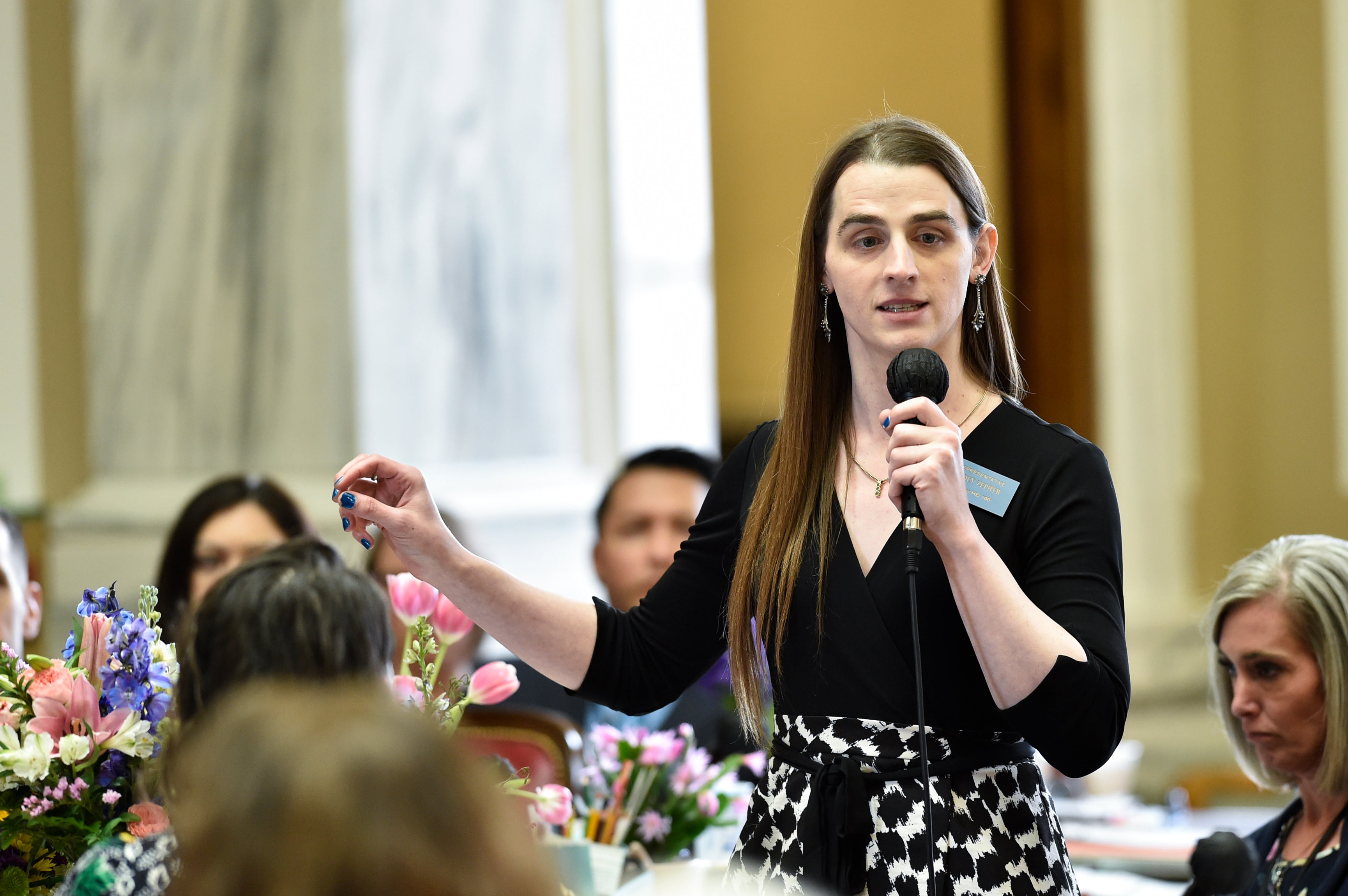
“When I rose up and said there is blood on your hands, I was not being hyperbolic,” Rep Zephyr said during debate around the censure vote “I was speaking to the real consequences of the votes that we as legislators take in this body. When the Speaker asks me to apologise, on behalf of decorum, what he’s really asking me to do is be silent when my community is facing bills that get us killed.”
The Speaker of the Montana House did not respond to a request for comment from The Independent.
Rep Zephyr told colleagues about receiving calls from LGBTQ+ families that were terrified about the impact of the various bills being discussing in the Montana legislature and shared the story of a trans teenager who attempted suicide while watching representatives discuss one such piece of legislation.
Experts consistently argue that gender-affirming care is a lifeline for LGBTQ+ youth, and the US Department of Justice has intervened in legal challenges to gender-affirming care bans in Alabama and Tennessee.
“The right to consider your health and medically-approved treatment options with your family and doctors is a right that everyone should have, including transgender children, who are especially vulnerable to serious risks of depression, anxiety and suicide,” Assistant Attorney General Kristen Clarke of the Justice Department’s Civil Rights Division said in a statement on 26 April.
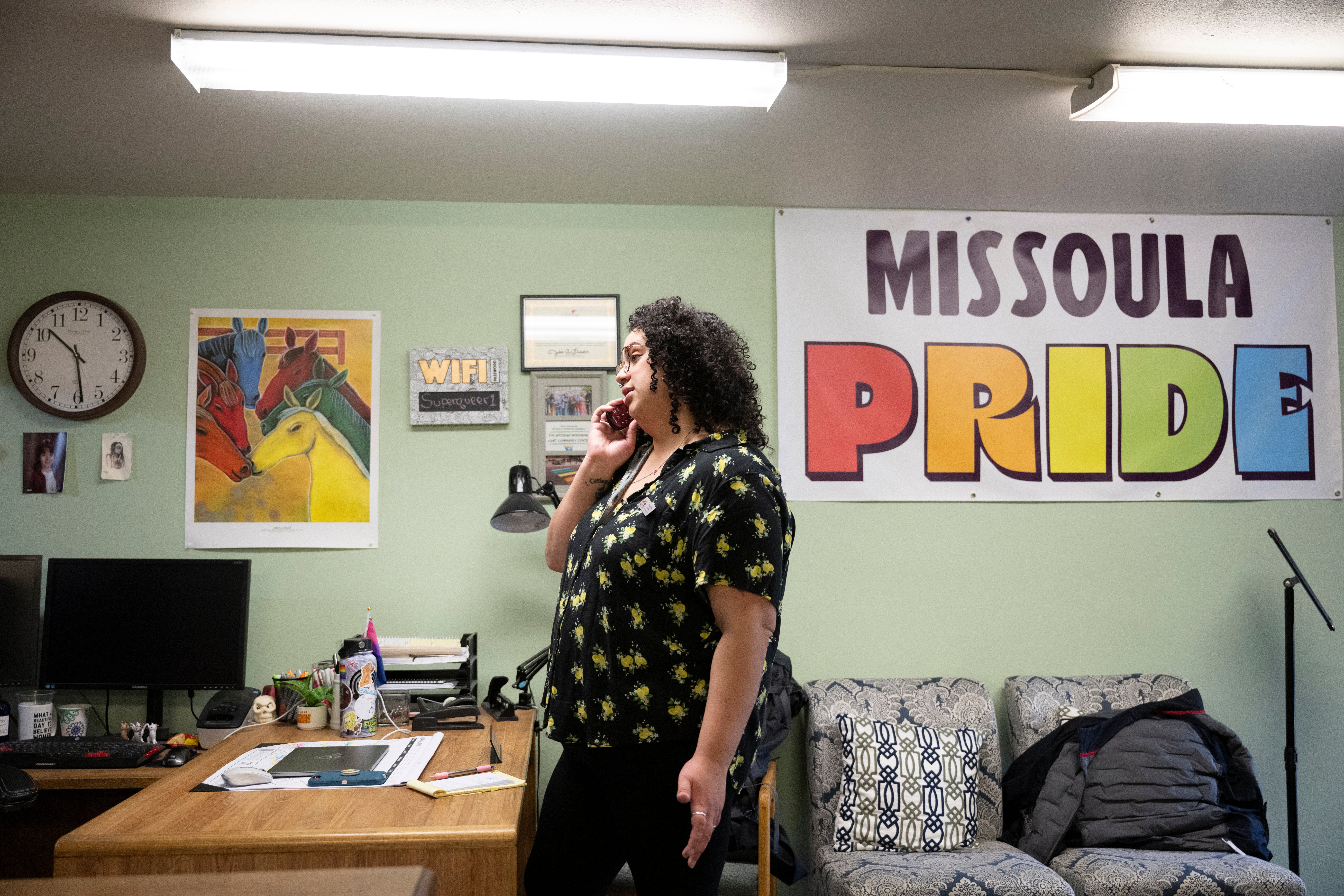
More than half of all trans youth in the US between the ages of 13 and 17 are at risk of losing access to age-appropriate and medically necessary gender-affirming healthcare in their home state, according to the Human Rights Campaign.
The onslaught of legislation and volatile political debate surrounding the bills has also negatively impacted the mental health of an overwhelming majority of young trans and nonbinary people, according to recent polling from The Trevor Project and Morning Consult.
A separate survey from The Trevor Project found that 45 per cent of trans and nonbinary youth have seriously considered attempting suicide over the last year.
The reality split could be seen again in terms of how lawmakers were talking about the protests in support of Rep Zephyr.
The Freedom Caucus has boosted articles from conservatives using the term “transurrection” to describe the protests, and lawmakers spoke of the demonstrations in the House as a direct and violent threat.
“The behavior violated the civil rights and safety of 99 other members of this body, our staff, our pages, and the public,” Representative Casey Knudsen, a Republican, said during debate last week.
(Rep Knudsen has not responded to a request for comment from The Independent.)
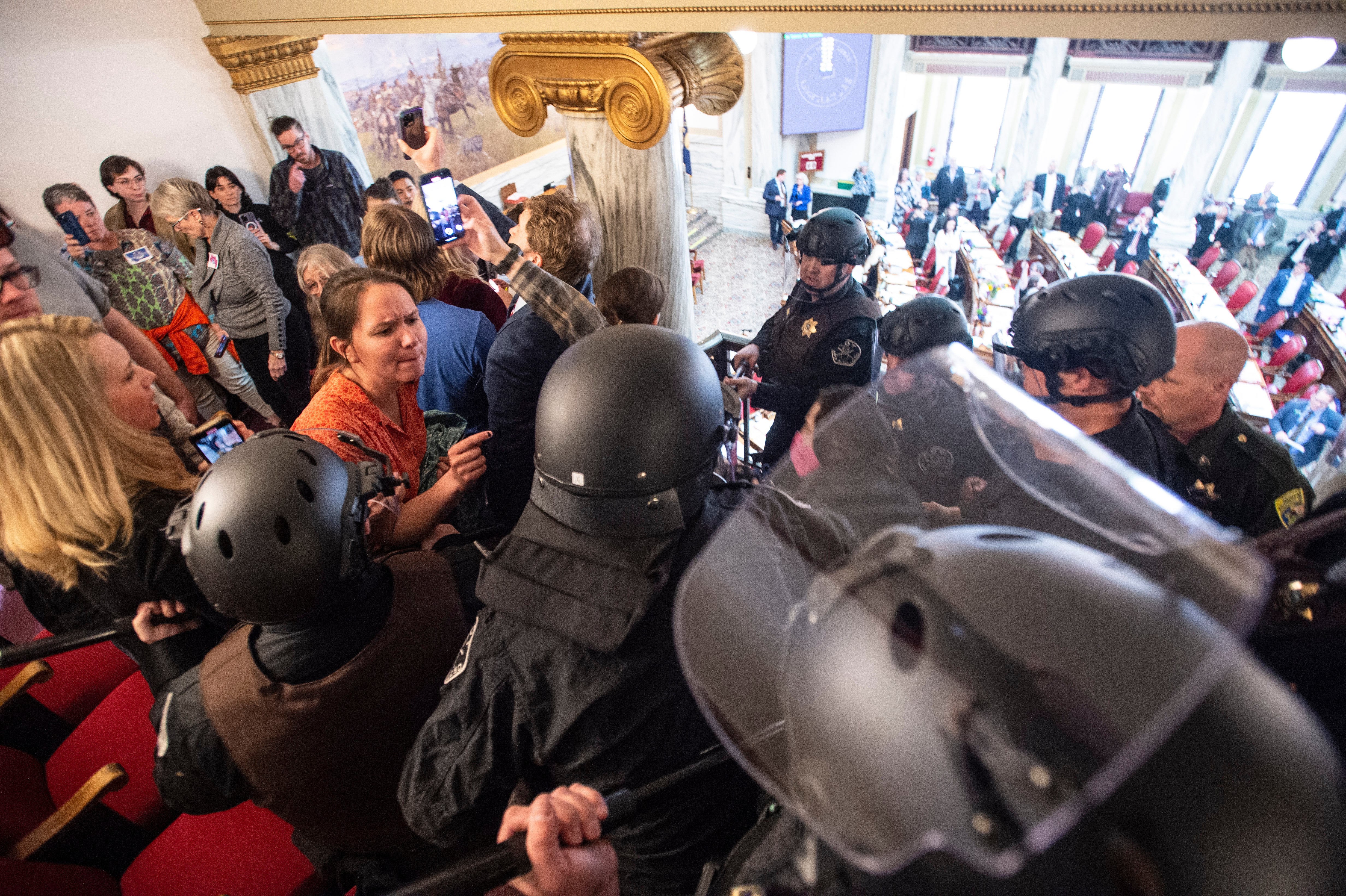
Conservative writers have claimed protesters threw punches at officers during the demonstrations, though other witnesses speaking to The Independent said the gathering was non-violent, except for riot police aggressively arresting people. Those arrested were charged with misdemeanour trespassing, rather than any charge related to violence, like assault.
“The idea that they’re trying to make out what was a peaceful protest to be something violent follows this train that they have been following all legislative session, trying to demonise and villainise trans, nonbinary, and two-spirit folks and silence our voices and then justify that silence,” Mr Reagor of the Montana Human Rights Network said.
“The idea that anything that happened was anything more than a peaceful protest is not only laughable, it’s a lie.”
It isn’t a given that Montana would be a hotbed of anti-trans legislation. The state, despite sharing a more rural character with certain deep-red states, is one of the few in the country with a US senator from each party.
However, observers say the tenor at the local level has swung far to the right in recent years.
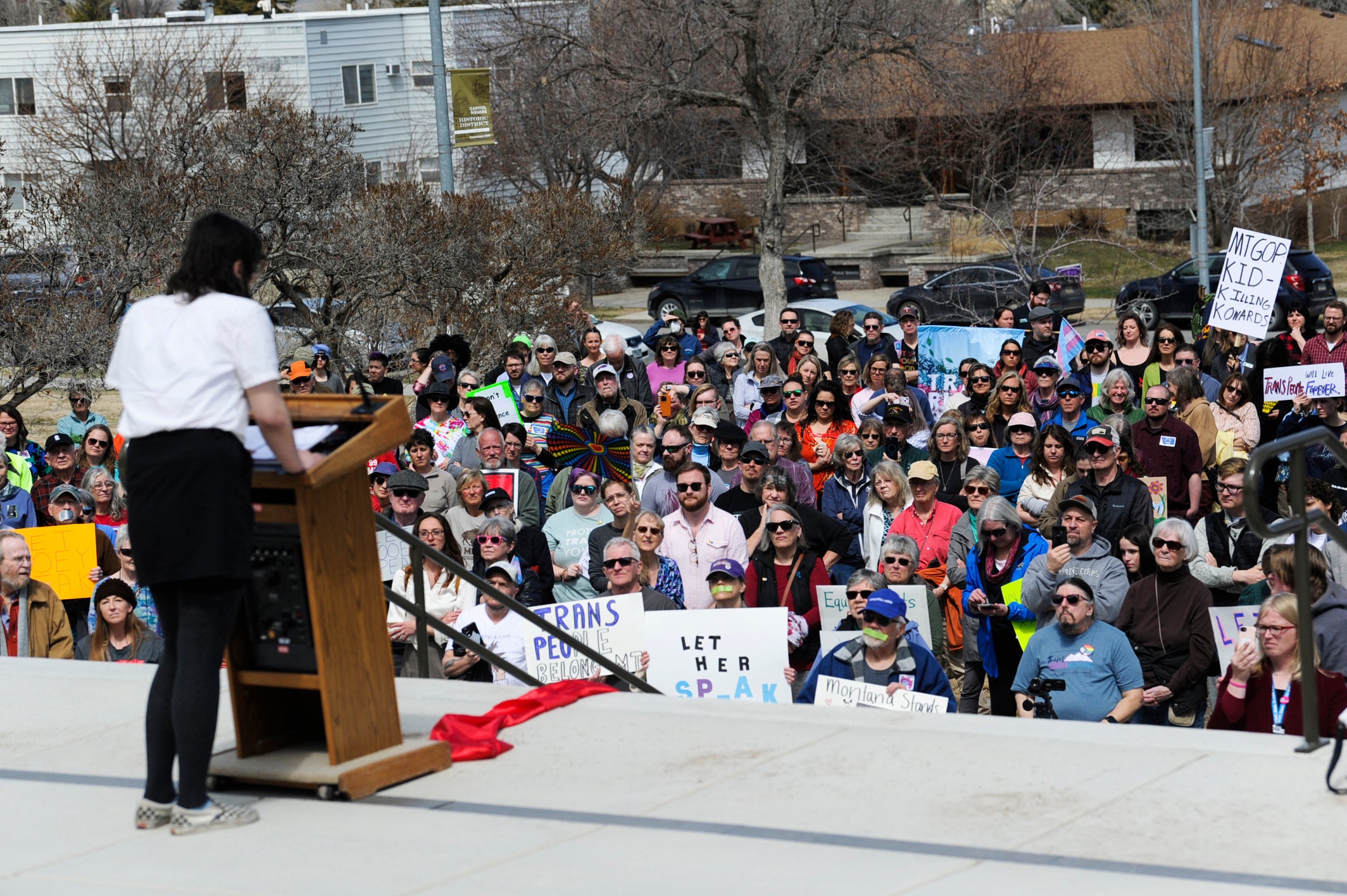
Things kicked off in 2021, when legislators failed to pass a gender-affirming care ban, but succeeded in pushing through a ban preventing trans people from playing in sports leagues matching their gender.
At the time, a university employee and former state wrestling champion named Zooey Zephyr testified before the state legislature.
“Trans people do not transition to gain an advantage in sports. We just don’t,” Ms Zephyr said at the time. “And I say that as someone who spat in water bottles and wore sweatshirts in the sauna to try to gain an advantage in wrestling.”
State lawmakers, the future representative said, were painting “a false picture of life as a trans woman,” and ignoring the main objective of why people transition, “which is to lead a happier life.”
As a result of the 2022 midterm elections, the GOP majority in the Montana legislature became a supermajority, allowing conservatives at the capitol to implement proposals backed by groups like ALEC and Moms for Liberty with little resistance.
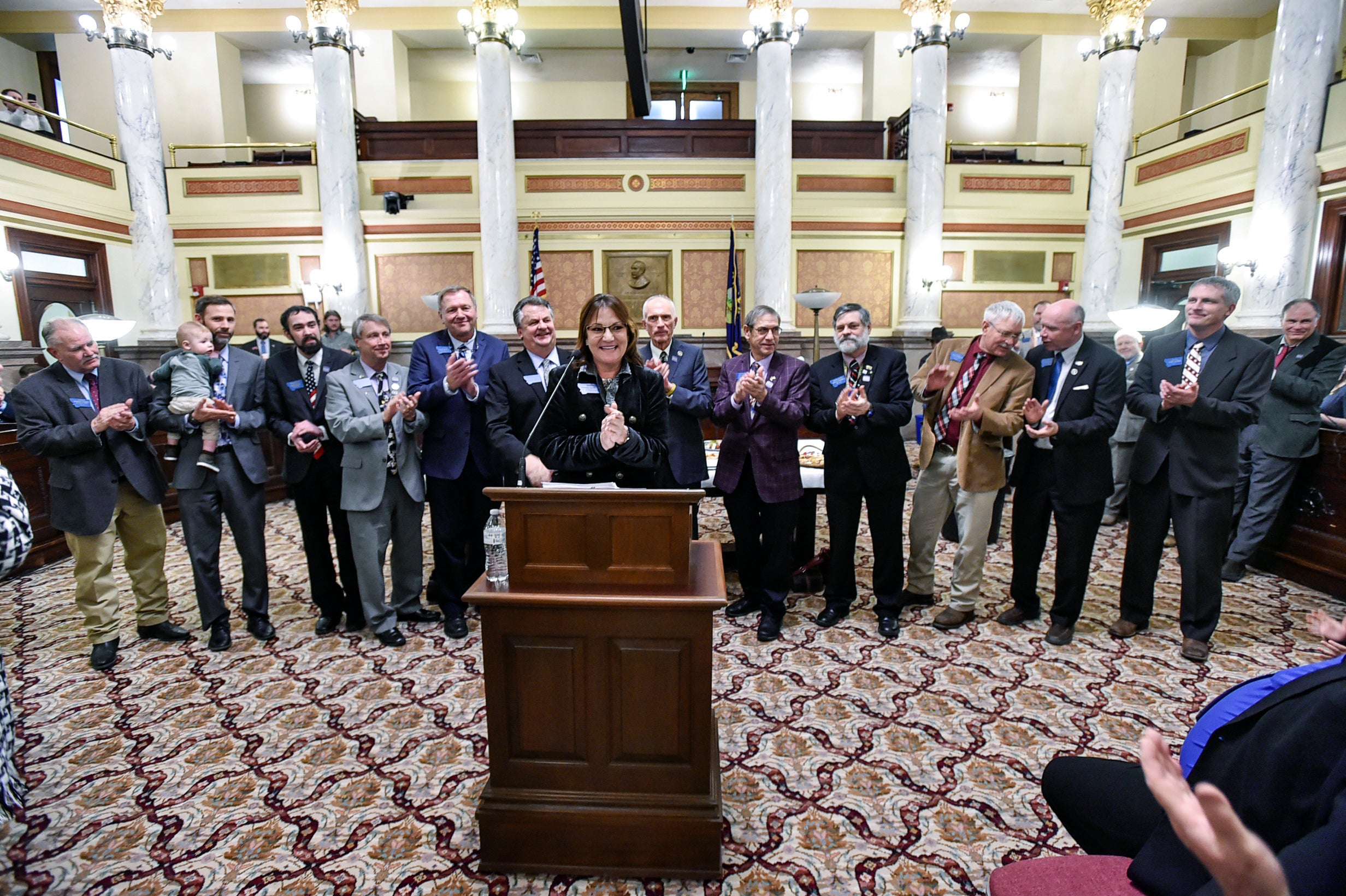
The gain in seats coincided with a political climate where Republicans were increasingly making singling out trans kids a central part of their platform nationwide.
“The national rhetoric around it and the fact that we have these boilerplate bills at the ready through groups like ALEC and being run by national nati-LGBTQ groups, they can sort of latch onto that,” Quinn Leighton with Planned Parenthood Advocates of Montana told The Independent. “This last session was the first time that our GOP here in Montana got a supermajority and it just kind of became a very different and hostile landscape for trans people.”
In the process some representatives, who opposed previous anti-trans legislation, like Rep Knudsen, have since switched sides on the same issues.
The fact of the GOP supermajority is all the more striking, according to Keegan Medrano of the Montana ACLU told The Independent, because it means the Republican party could pass whatever bills it wants without any cooperation from Democrats, but still has chosen to go after a single Democratic representative who poses no practical threat to their agenda.
“They could pass every single thing that they want,” Medrano, who is two-spirited, said. “And they could get out of here in 85 days. They’re dragging it out. They’re immiserating people. They’re punishing people. They’re putting people on trial.”
“It only shows the political shortsightedness and the rage they have for us. “
Medrano also argues that the focus on anti-LGBTQ+ legislation ignores other pressing issues in Montana, like contaminated water and a state housing crisis.
“People are struggling with inflation, with gas prices, with putting food on the table,” they said. “Our schools have lead in the water. We’re talking about pronouns and kids at the end of the day who are just trying to find themselves and become the people they are.”
The Montana legislative session ends on 6 May, but the fight for LGBTQ+ rights in the state and beyond is not over.
In addition to Rep Zephyr’s lawsuit against Montana’s House leaders, the ACLU, the ACLU of Montana, and Lambda legal have promised to challenge the state’s gender-affirming care ban.
Even as at least 15 states have now enacted laws or policies banning gender-affirming care for young trans people, and more than a dozen others are considering similar measures, lawmakers beyond Montana are waging intense struggles to halt such bills, even if it often makes them an outlier in conservative-leaning legislatures.
In Nebraska, a small group of Democratic lawmakers in the state’s officially non-partisan legislature engaged in a remarkable two-month filibuster over a bill outlawing gender-affirming healthcare, which thus far has prevented the law from being passed and has dramatically slowed the pace of bills in the state legislature.
“I think there is absolutely a movement nationally, and it’s against hate in general, but it’s also against just these far-right culture war bull**** policies that no American and no Nebraskan actually cares about,” Megan Hunt, Nebraska’s first openly LGBT+ state senator, told The Independent.
In Michigan, state senator Mallory McMorrow went viral after blasting colleagues for accusing a legislator of attempting to “groom” and “sexualise” children, slurs that have become an increasingly common part of the GOP lexicon as it attempts to stir up fears about LGBTQ+ people.
Senator McMorrow condemned the attacks and placed them within a broader, toxic national campaign to distort concepts like “critical race theory” and LGBT+ people for political leverage.
“I am a straight, white, Christian, married suburban mom, who knows that the very notion that learning about slavery or redlining or systemic racism somehow means that ‘children are being taught to feel bad and hate themselves because they are white’ is absolute nonsense,” Senator McMorrow said.
She added: “No child alive today is responsible for slavery. No one in this room is responsible for slavery. But each and every single one of us bears responsibility for writing the next chapter of history. … We are not responsible for the past. We also cannot change the past. We can’t pretend that it didn’t happen, or deny people their very right to exist.”
And in Tennessee, attempts from Republican lawmakers to expel two legislators from the state House of Representatives for participating in an anti-gun violence protest inside the capitol backfired spectacularly.
The effort to expelt the lawmakers, Democrats Justin Jones and Justin Pearson, resulted in the members not only being reinstated, but also in taking their calls for new gun violence legislation after the Nashville shooting to the White House, where they spoke with President Biden.
After the meeting, Rep Jones argued this more adversarial approach has already borne fruit, with the Tennessee lawmakers’ house protest arguably prompting the NRA-backed Republican governor of Tennessee to call for a special session to address gun reform.
“It’s going to take us just not seeing this as a politically inevitability,” Mr Jones added. “We have to organize for this as a movement. This is our Selma moment.”
In Montana, observers say something similar will happen.
“The Montana Republicans are making a fatal mistake,” Medrano of the Montana ACLU told The Independent.
Hundreds of people in Missoula rallied for Rep Zephyr following the expulsion vote. Community members draped a banner across a highway bridge that read, “Trans people will live forever.”
Rep Zephyr may not be able to speak from the House of Representatives floor, and the perspective of trans people may not be informing what gets passed out of the Montana legislature, but one thing is certain: their voices have not been silenced.
If you are based in the US and seek LGBT+ affirming mental health support, resources are available from Trans Lifeline (877-565-8860) and the LGBT Hotline (888-843-4564), as well as The Trevor Project (866-488-7386 or text START to 678-678).
If you are experiencing feelings of distress, or are struggling to cope, you can speak to the Samaritans, in confidence, on 116 123 (UK and ROI), email jo@samaritans.org, or visit the Samaritans website to find details of your nearest branch.
If you are based in the US, and you or someone you know needs mental health assistance right now, call or text the 988 Suicide & Crisis Lifeline at 988. This is a free, confidential crisis hotline that is available to everyone 24 hours a day, seven days a week.
If you are in another country, you can go to www.befrienders.org to find a helpline near you.



Join our commenting forum
Join thought-provoking conversations, follow other Independent readers and see their replies
Comments